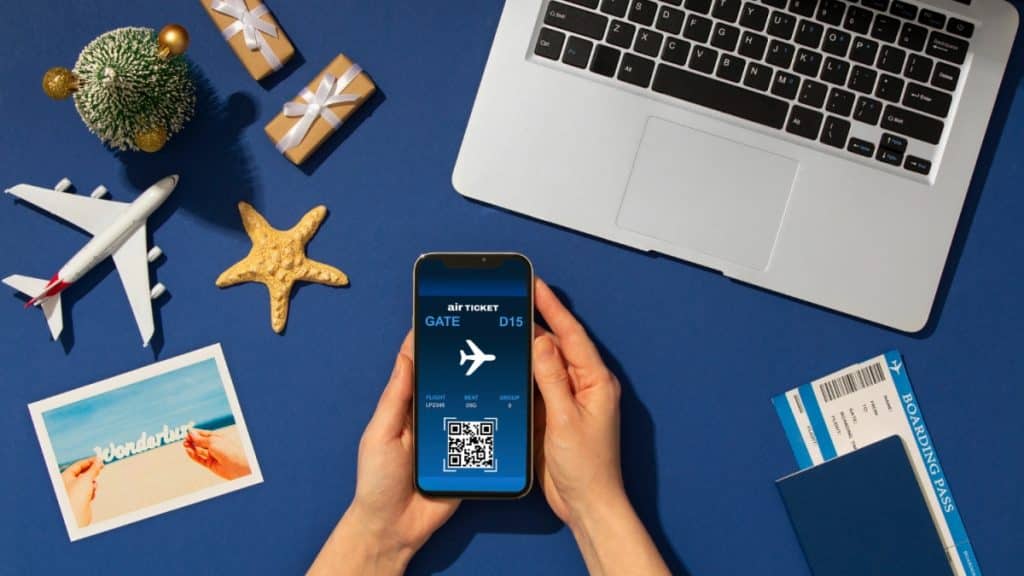Just like other sectors, the travel industry is continuously shaped by trends and influences. Notably, travel apps, consistently at the forefront of these changes, often enable these emerging technologies and concepts.
As we navigate the upcoming trends in the travel market, it’s clear that travel apps have a significant role to play. This insight can be a valuable travel app development guide for those interested in the future direction of this dynamic industry.
Personalization
Personalization is the buzzword for the future. By 2024, travel apps are set to harness the power of AI and machine learning to offer unique experiences for every user. These smart apps will analyze each user’s preferences and past habits to suggest destinations, hotels, and activities that align with their style.
The content users encounter will be tailored to their interests. Beach enthusiasts, for instance, can expect recommendations for the trendiest resorts in Hawaii or the Bahamas. Adventure seekers might come across suggestions for multi-day hikes in New Zealand or Patagonia.
Thanks to GPS technology, the app will also recommend local attractions in real time. Imagine a user wandering in Paris, and suddenly their phone nudges them about a charming café just around the corner or a top-rated bakery a few blocks away. Discovering hidden gems in any city they visit will become effortless.
With advanced personalization, the cherry on top is that users will receive tailor-made deals and discounts. Based on their preferences for boutique hotels, luxury cruises, or safari camps, they’ll get offers that allow them to score the best prices. The future of travel is all set to revolve around the traveler, putting them front and center.
Mobile payments
Mobile payments are reshaping the travel experience. By 2024, travelers can expect to ditch their wallets while being able to pay for nearly everything with their phones. Contactless payments, facilitated through NFC or QR codes, will be the norm, making it possible to tap a phone or scan a code for buses, subways, taxis, and more. The inconvenience of searching for cash or swiping a metro card will become a thing of the past.
Many cities are developing their own apps, offering virtual passes for public transit, bike shares, parking, and entertainment. Users can simply buy a pass in the app and scan as they move around. Some of these passes even auto-renew, enabling a ‘set it and forget it’ lifestyle.
Travel apps are further integrating payment systems, letting users book and pay for their entire trips in one convenient location. From reserving rental cars or tours to securing virtual tickets or boarding passes, travelers can handle all their needs efficiently without toggling between various websites or services.
By 2024, mobile payments for travel will become second nature. It eliminates the worry over having enough small change or the uncertainty of a credit card working overseas. With mobile payments, travelers can smoothly navigate their journeys and focus on savoring their destinations.
AI Chatbots
Travel companies worldwide are increasingly adopting AI-powered chatbots to manage routine customer inquiries. These smart chatbots can comprehend natural language and provide useful responses without any human intervention. As they interact more and accumulate data, they become even smarter, offering around-the-clock customer service while saving companies money.
For travelers, these AI-powered chatbots are getting better at understanding their needs. Whether it’s suggesting a destination, booking a hotel or flight, or providing weather updates, these chatbots are up for the task. With each interaction, they learn more about the traveler’s preferences and habits, providing increasingly personalized service. In essence, the more a traveler chats with a bot, the more finely-tuned its responses become.
AR and VR
By 2024, it’s predicted that AR and VR will revolutionize the way people research, book, and experience their trips. Hotels, airlines, and destinations are beginning to adopt these technologies to offer an immersive preview of their facilities and locations. Users, right from their mobile devices, can explore 360-degree photos and videos of rooms, cabins, resort pools, and beyond. Some travel brands are even enhancing their offerings with 3D models and virtual tours users can navigate.
These technologies are elevating the booking and planning experiences, enabling users to make more informed decisions about their stays and activities. Once they reach their destination, AR apps can superimpose points of interest, reviews, and navigation directions on the real-world surroundings, aiding exploration.
While AR and VR are still budding technologies, by 2024, they could significantly transform the travel industry. As they continue to evolve, these technologies will essentially offer the ability to explore destinations from anywhere.
Voice User Interfaces (VUIs)
Voice user interfaces (VUIs) like Siri, Alexa and Google Assistant have become increasingly sophisticated, and travel apps are poised to leverage this trend.
Imagine planning a trip with just your voice – no more clicking and typing required! VUIs can understand complex travel requests and provide recommendations tailored to your needs and preferences. You might say, “I want to take a beach vacation in Mexico for 7-10 days during Christmas break. Find some options for me.” The VUI would then suggest destinations, hotels, and an itinerary for your ideal beach getaway in Mexico over the holidays.
Hands-free travel planning with a VUI makes the process that much simpler and more natural. The technology is constantly improving, so VUIs will become even more adept at handling detailed travel queries and providing customized results. Travel apps would be wise to integrate VUIs to offer users an innovative new way to research and book trips.

